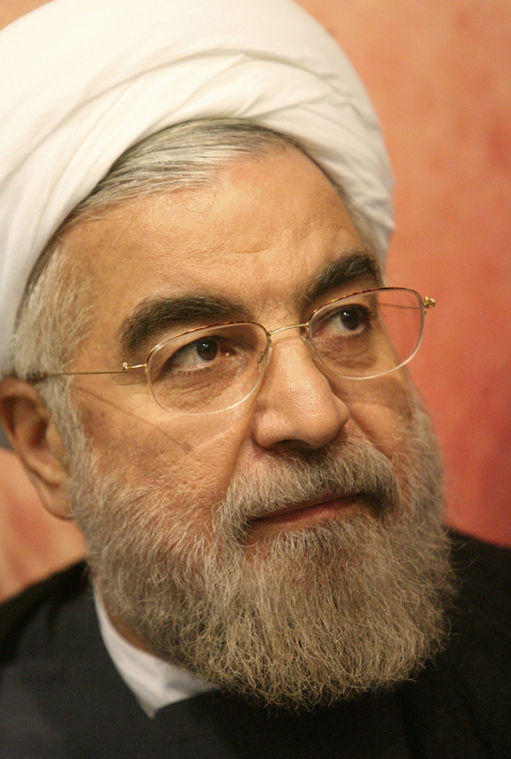New Iranian president promising to citizens, western relations
Iranian President Hasan Rouhani, seen June 1, 2013 in Tehran, Iran, will speak Sept. 24 in front of the United Nations. He speech will be closely watched for signs that he is willing to thaw relations with the West.
This year, Iranian citizens elected Hassan Rouhani as their new president. Rouhani appears to be more moderate than his predecessor Mahmoud Ahmadinejad. He also seems more willing to work with the United States on mending their relations.
Rouhani has apparently been exchanging letters with President Barack Obama —a big sign of his commitment to mend U.S.-Iran relations.
Although we do not know exactly what the two world leaders have written in these letters, the tone of the exchanges has been positive, according to Rouhani. Regardless of what these leaders wrote, the fact that they are communicating is a good sign of easing tensions.
Iran’s nuclear program is a key aspect of U.S.-Iran relations. But the program has been under scrutiny by most western countries, especially America. Iranian officials have said that they are enriching uranium for peaceful purposes, but their actions — like testing long range missiles — say otherwise.
Rouhani has said he will not stop the nuclear program, but he will work from inside the country to end the fight with the West over the program. He told NBC News’ Ann Curry that his country “will never develop nuclear weapons.”
Unlike Ahmadinejad, Rouhani seems like a person who will keep his word and allow others inside his country to examine the nuclear program.
Rouhani will be in New York City this week attending the United Nations General Assembly. He might even bring some proposals that will distance him from his predecessor. For example, instead of bashing Israel and denying the Holocaust, Rouhani will talk about how his country can play a more constructive role in international politics.
The more Rouhani can further himself from Ahmadinejad, the better off he and his country will be.
Rouhani has already set himself apart from Ahmadinejad by tweeting “Happy Rosh Hashana” in respect of the Jewish holiday. This starkly contrasts Ahmadinejad’s infamous denial at the U.N. of the existence of the Holocaust. This simple tweet is a step towards erasing the anti-Semitic image that Ahmadinejad imposed on Iran.
Astonishingly enough, Rouhani does not have all the power in Iran. Supreme Leader Ali Khamenei is actually the most powerful figure in the country. Even as the elected president of Iran, Rouhani still must answer to Ali Khamenei. Although it seems that Khamenei is letting Rouhani hold the reigns on Iran, he can just as easily take those reigns from the president. So if Rohani does anything that could make the Supreme Leader mad, he could potentially alter Iran’s domestic and foreign policies.
Rouhani is leading Iran in a new direction; he seems much more willing to cooperate with other nations than his predecessor. Rouhani seems to be a president who wants to improve the country for his people, rather than use his position for personal gain.







